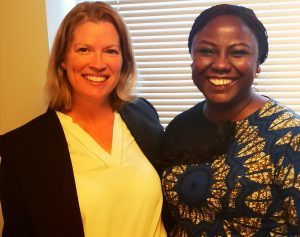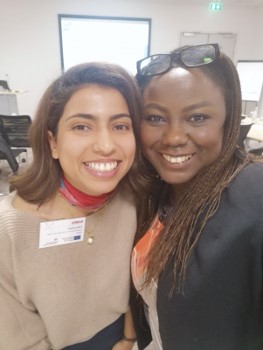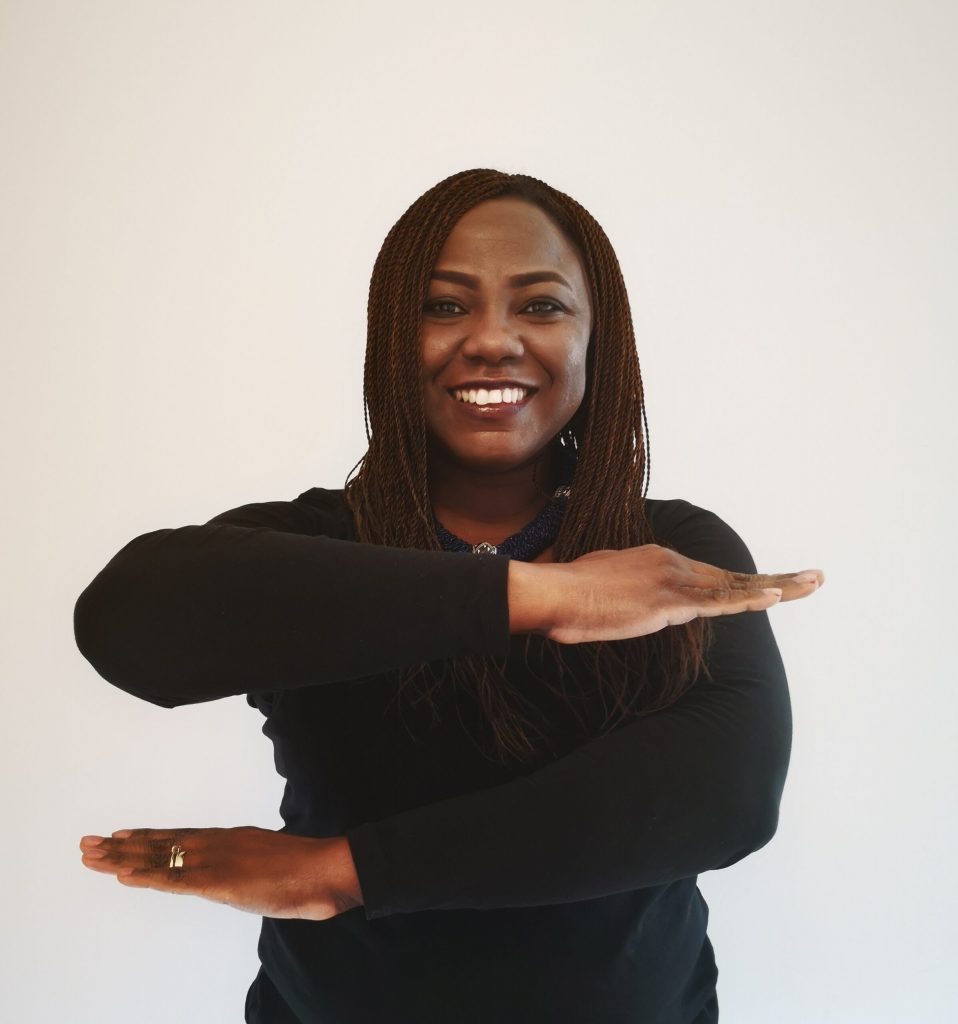


Last week started with a great round table meeting with HM Trade Commissioner to Africa, Emma Wade-Smith. The event was organised by Exemplas Trade Services on behalf of the Department for International (DIT) Trade East of England. It was great to have a discussion on the measures that the government is taking to support local businesses in their export plans. And I was honoured to be invited along with five other businesses in the region.

It was inspiring to see that Mrs Wade-Smith has a passion for Africa that in nearly 10 years of business, I have not yet seen. This filled me with extreme confidence and I know this is going to be the golden era of trade to Africa. I didn’t sense the imperious attitude towards the business opportunities on the continent and neither did I feel that this was an economic grab. As a result, I believed it was a genuine effort to build mutually beneficial relationships on the continent.
This was followed by the Selling to Africa: Life Sciences and Healthcare event. Also run by the DIT, this event attracted businesses in the sector from across the East of England. It was fantastic to have a representative from DIT in Egypt, Salma Amin, present a pragmatic and detailed market entry approach to the delegates. Ayuk Foma Mafomekong, from DLRC Ltd, the regulatory consultants, also gave a great presentation on navigating the regulatory environment for medicines across the continent.

This was the first time that I had heard about efforts to harmonise compliance across the continent – you learn something new every day! Above all my clients will be pleased to hear that this is progressing and that the target is 2021.
We also heard from Phil Jennings, from Santander, who gave an impressive presentation on the South African market and the bank’s large network of partners across the continent.
Finally, I gave a presentation on Nigeria, Ghana, Morocco, Ethiopia and Kenya – covering research and development, budget allocations and some opportunities available to businesses in those countries.
It’s safe to say that this was one of the most practical, detailed events I have been to in a while. Africa as a whole is hard to cover, but focusing on these specific countries, clarifying regulatory requirements and being open and honest about timelines, opportunities and challenges, was a refreshing experience. Well done to Marguerite and her team for organising this event.
So, the motto is, we progress. And, we keep calm and carry on.
International Women’s Day is a global day to celebrate the social, economic, cultural and political achievements of women. It provides the opportunity to look at how far women have come in terms of equality. It’s fitting that this year’s theme is #EachforEqual and how ‘equality is not a women’s issue, it’s a business issue’. Here, our managing director Bolaji Sofoluwe, discusses her passion for celebrating women in high-profile positions.
A lot of progress has been made in equality in recent times – I’m really excited to see women in politics and really excelling.
The prime example is Jacinda Ardern, the Prime Minister of New Zealand – a woman in a high-powered position who is continually showing the world what real leadership is.
In Africa, there is trailblazing work going on with women in government positions and on company boards. The Ethiopian cabinet is half women which is a massive step forward in gender parity.
The continent is seen as having strong patriarchal traditions. So, for Ethiopia’s Prime Minister Abiy Ahmed to place women in his cabinet is just phenomenal.
And, in just this past month, three women have been appointed to the boards of companies listed on the Nigerian Stock Exchange.
According to the African Development Bank Group, women hold close to one third of the seats in parliaments in 11 African countries – more than in Europe.

I am 100% behind the gender equality movement and I want young women to feel empowered and aspire to become business leaders or politicians.
Although I am passionate about my African roots, I developed my career while living in the UK in my 20s. I worked first in insurance before moving into banking.
This knowledge – which includes understanding logistics, legislation, economics and business – helped form the ETK Group in 2012 and my understanding of both the African and the British culture has allowed the company to successfully work across both continents.
Some of our East of England clients have enjoyed successful work in Nigeria, South Africa and Kenya. The company also has clients in the north of England and London. And nearly half come from around the world including USA, Singapore, Sweden, Holland and Finland.
Businesses have been very receptive to trading with Africa, especially following Brexit. As a result, many SMEs have explored opportunities to trade elsewhere in the world – Africa in particular.
And the continent is home to six of the 15 fastest growing economies in the world. The time is right for the UK’s businesses to capitalise on the vast amount of growth predicted across Africa in sectors including agriculture, renewables, finance and technology.
The fact is that African women are highly entrepreneurial and own a third of all businesses across Africa. And I am proud to be part of that movement and celebrate this International Women’s Day.